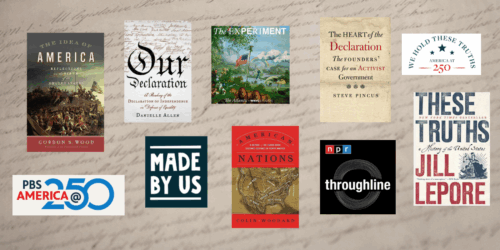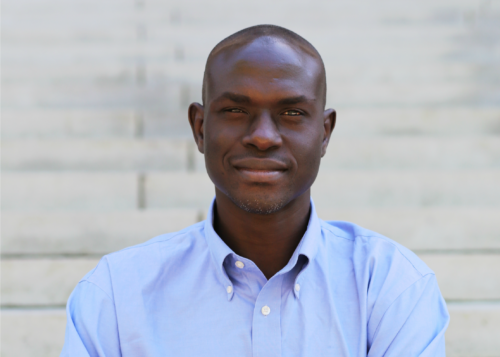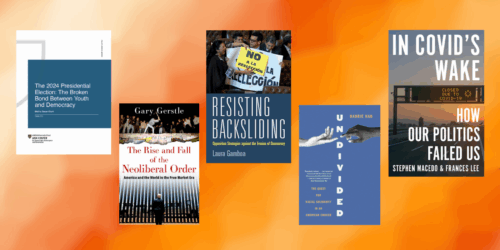Rising from the ashes of decades of war, South Sudan gained independence four years ago and has struggled mightily to build both a modern government and economy. While much of the international community’s attention has been focused on forging a durable peace to the internecine conflict that has racked the country since it broke away from the Sudanese government, Charles Data Alemi MPA/ID ‘15 thinks South Sudan’s future can be significantly shaped by something as mundane as its tax code.
“On the surface tax collection can be dry, but it can also be interesting,” Alemi said. “It’s all about how much you care about the topic and can see the need for it. Considering the path for South Sudan, taxes are very important.” Despite boasting profitable oil fields and some of the richest agricultural areas in Africa, many South Sudanese live in extreme poverty and the government is struggling to provide basic services amid the ongoing civil war that has displaced over 1.5 million people and resulted in the deaths of tens of thousands.
While South Sudan’s economic development has been predicated on its generous reserves of oil, the sale of which accounts for nearly 98 percent of the state’s budget, Alemi recognizes that the country’s long-term economic and political stability depend on the growth of diversified revenue streams. For his second year policy analysis (SYPA), the capstone for his degree, Alemi charted South Sudan’s tax system and developed recommendations for modernizing its collection processes.
Alemi has dedicated his professional career to improving conditions in South Sudan — it is where he feels he can make the most difference and it is where his roots lie. He was born in Sudan and fled with his family to Uganda during the Second Sudanese Civil War. He received a scholarship to attend United World College in Norway and went on to study at Colby College and the University for Peace. Prior to enrolling at Harvard Kennedy School (HKS), he spent eight years working for various NGOs and development organizations in South Sudan. At HKS, Alemi took courses in taxation, economic theory, and the formation of public institutions in developing countries, which informed his SYPA. He received support from the Ash Center for his field research and Jay Rosengard served as his SYPA faculty advisor. Alemi presented his findings as part of the center’s weekly student speaker series.
Analyzing relevant tax law, previous studies, and available data, Alemi found that although oil is almost the only product that South Sudan exports, it imports a substantial and growing quantity of goods. This provides a sizable source of revenue in the form of border taxes, which Alemi estimates could net over $300 million per year. He argues that the government is capturing less than 30 percent of that figure, and he traveled to South Sudan in January of 2015 to get a better sense of the problem.
He spoke to relevant stakeholders including customs officers, clearing agents, and import traders in the capital of Juba and the border post in Nimule where the majority of goods enter the country through Uganda. He was not surprised to find that many of the departments were understaffed, lacked formal training, and relied on handwritten ledgers instead of digitized reports, but he was struck by the poor data collection procedures.
“In terms of reporting on daily activities, many of the details were missing,” he said. “For example, you couldn’t connect a truck coming in with a certain amount of tomatoes to the value of those tomatoes to the tax levied on them. The data was siloed across departments and could not be aggregated in any meaningful way. So, what does the senior official in Juba get to see? Unusable numbers and no room to question or improve the system.”
Based on his field interviews and what he could discern from the available data, Alemi made three policy recommendations to the South Sudan Customs Service: (1) strengthen and streamline collection of comprehensive data for policy analysis; (2) simplify the tax system by reducing the number of taxes and tax rates; and (3) stop awarding tax exemptions to government contractors and seek to limit the scope of exemptions for the UN and other donors.
In the long-term, he hopes increased tax revenue will replace oil as the primary means of footing the government’s everyday bills. “It’s not just about bringing new resources into the government’s financial basket,” Alemi said. “It’s about changing the way we think about oil and bringing some discipline and accountability into the oil sector.”
Alemi is passionate about the country’s future and the role of the South Sudanese diaspora in contributing to its development. “People have put their lives on the line for independence, but the struggle doesn’t end there,” he said. “The hard work is now. Proving to the rest of the world that we can actually build a country and move on from conflict will require many of us who were fortunate enough to have received an education to return to South Sudan.”
“I believe there is a signaling effect that happens when people come back. I’m not saying that I’m this big shot from Harvard who’s going to fix everything, but when I return it sends a message to the people of South Sudan that there is opportunity here as well — and I truly believe that there is opportunity in South Sudan.”




